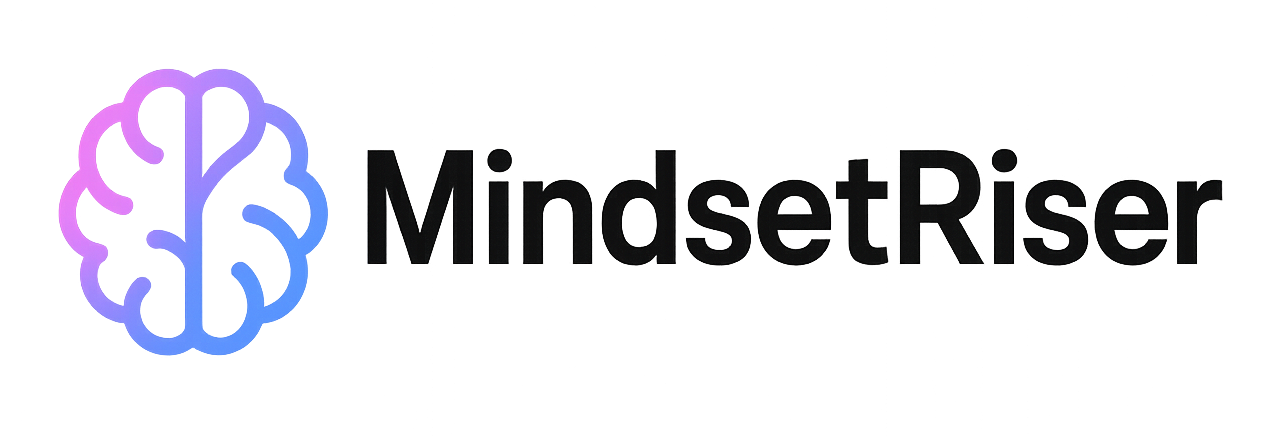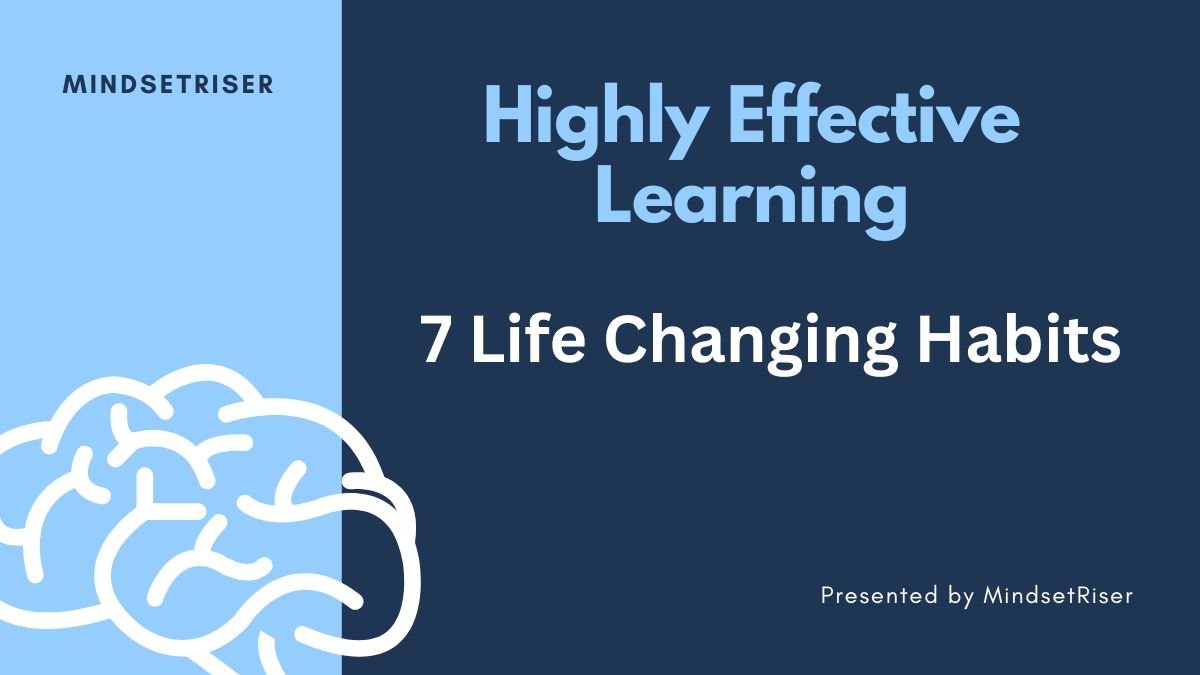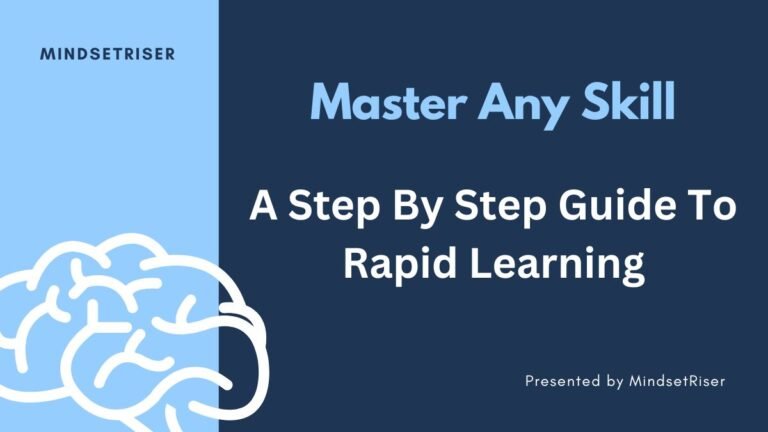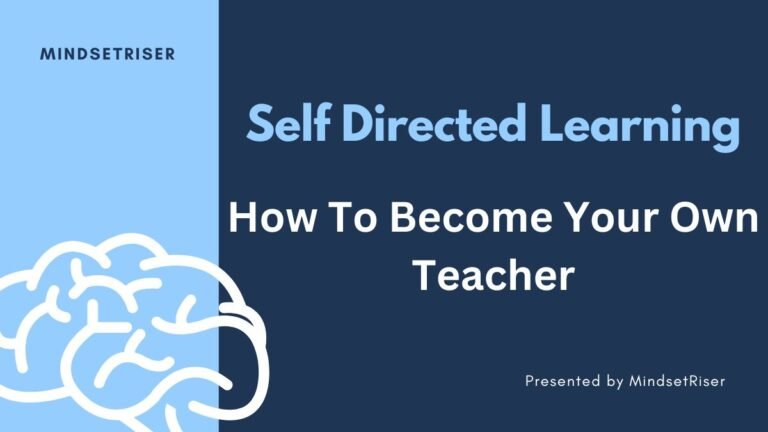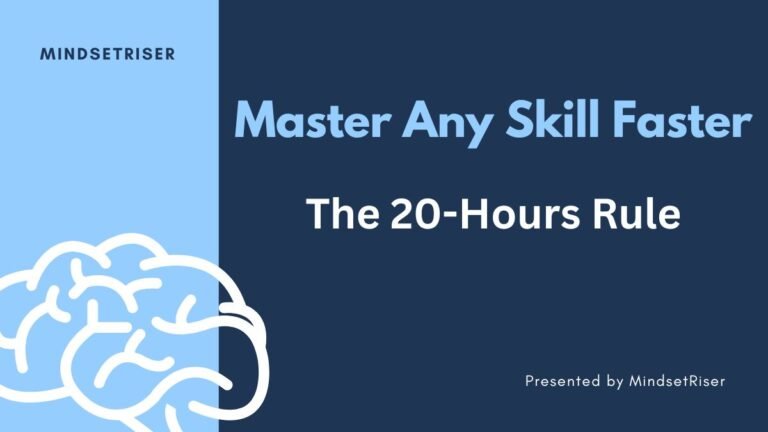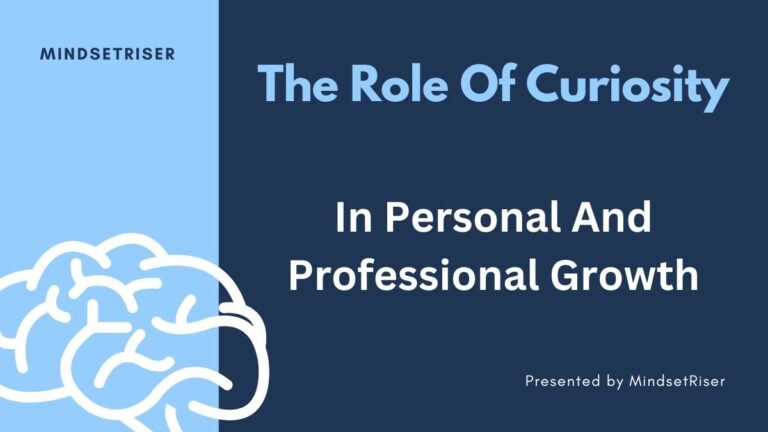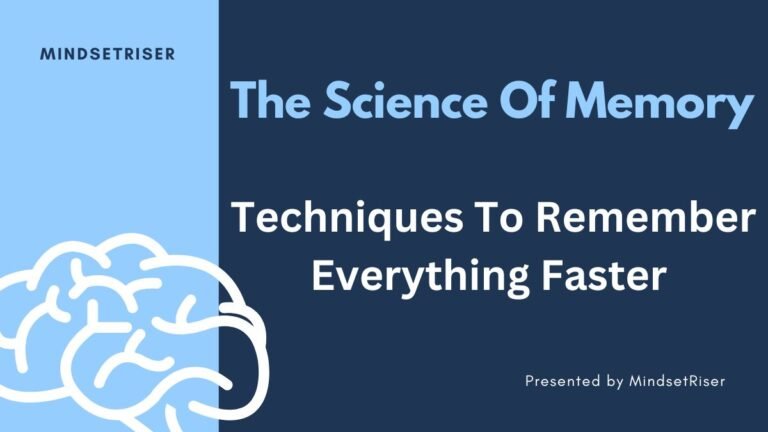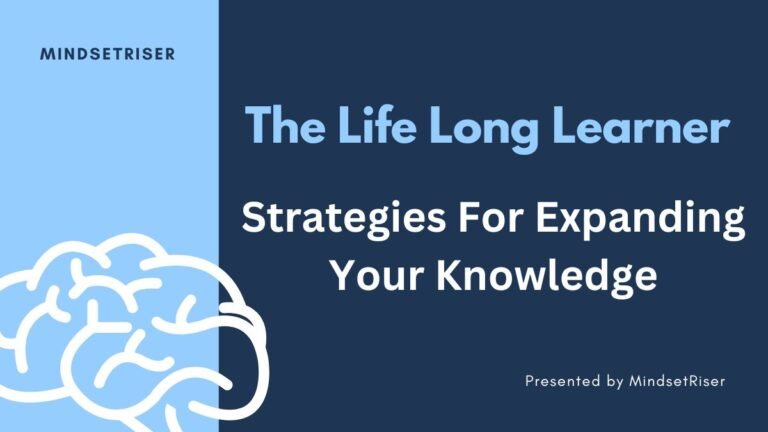7 Life-Changing Habits of Highly Effective Learners
Introduction Have you ever wondered why some people learn faster, retain information better, and apply knowledge effortlessly? The secret lies in their learning habits. Highly effective learners don’t just rely on intelligence; they develop powerful strategies that help them absorb, process, and use knowledge effectively. The good news? You can develop these habits too! In…
Introduction
Have you ever wondered why some people learn faster, retain information better, and apply knowledge effortlessly? The secret lies in their learning habits.
Highly effective learners don’t just rely on intelligence; they develop powerful strategies that help them absorb, process, and use knowledge effectively. The good news? You can develop these habits too!
In this guide, we’ll explore the 7 life-changing habits that will help you become a smarter, more efficient learner.
1. They Set Clear Learning Goals
Effective learners don’t just study randomly; they have a plan.
📌 How to Do It:
- Define specific, measurable, and time-bound goals.
- Break large topics into smaller, manageable sections.
- Keep a learning journal to track progress.
🔹 Example: Instead of saying “I want to learn Spanish,” set a goal like “I will learn 20 new Spanish words per week for 3 months.”
✅ Why It Works: Goals provide direction, motivation, and a sense of achievement.
2. They Embrace Active Learning
Passive learning (just reading or watching videos) isn’t enough. Active engagement is key.
📌 How to Do It:
- Take notes in your own words.
- Summarize what you learned aloud or teach someone else.
- Use the Feynman Technique: Explain the topic as if you were teaching a child.
🔹 Example: Instead of just watching a tutorial, pause and practice what you learned.
✅ Why It Works: Active learning enhances comprehension and long-term retention.
3. They Use the Power of Spaced Repetition
Highly effective learners don’t cram—they use spaced repetition to reinforce knowledge over time.
📌 How to Do It:
- Use apps like Anki or Quizlet to review concepts at intervals.
- Revisit notes after 24 hours, 1 week, and 1 month for better memory retention.
- Test yourself regularly instead of just re-reading materials.
🔹 Example: If you’re learning new vocabulary, review words at increasing intervals rather than all at once.
✅ Why It Works: The brain retains information better when reviewed over time.
4. They Cultivate a Growth Mindset
The most effective learners believe in their ability to improve through effort and persistence.
📌 How to Do It:
- Replace “I can’t do this” with “I can’t do this YET.”
- View mistakes as opportunities to learn.
- Celebrate progress, not just results.
🔹 Example: If you struggle with math, remind yourself that every expert was once a beginner and that progress takes time.
✅ Why It Works: A growth mindset increases resilience and motivation to learn.
5. They Apply What They Learn Immediately
Knowledge without application fades quickly. Highly effective learners put information into practice right away.
📌 How to Do It:
- Use real-life examples to connect new information with existing knowledge.
- Apply skills through projects, discussions, or problem-solving.
- Teach others what you’ve learned—it reinforces your understanding.
🔹 Example: If you learn a new marketing strategy, implement it in a small project instead of just reading about it.
✅ Why It Works: Immediate application strengthens understanding and long-term retention.
6. They Optimize Their Learning Environment
Your surroundings can enhance or hinder your ability to focus and absorb information.
📌 How to Do It:
- Find a quiet, clutter-free study space.
- Minimize distractions (use apps like Forest or Freedom to block distractions).
- Experiment with background music (classical, white noise, or silence—whichever helps you focus).
🔹 Example: Studying in a noisy café? Use noise-canceling headphones to create a distraction-free zone.
✅ Why It Works: A focused environment improves concentration and learning efficiency.
7. They Stay Curious and Never Stop Learning
Lifelong learners stay motivated by feeding their curiosity and making learning enjoyable.
📌 How to Do It:
- Explore different learning methods (videos, books, podcasts, interactive courses).
- Follow thought leaders and experts in fields of interest.
- Ask questions and seek deeper understanding.
🔹 Example: Instead of memorizing historical dates, explore the stories behind them to make learning engaging.
✅ Why It Works: Curiosity keeps your brain engaged and makes learning enjoyable.
Conclusion
Becoming a highly effective learner isn’t about being naturally gifted—it’s about developing the right habits.
By setting clear goals, engaging in active learning, using spaced repetition, maintaining a growth mindset, applying knowledge, optimizing your environment, and staying curious, you can learn faster, retain more, and unlock your full potential.
Start implementing these habits today, and watch your learning abilities transform!
Key Takeaways
✅ Highly effective learners set clear, measurable learning goals.
✅ Active learning, spaced repetition, and immediate application improve retention.
✅ A growth mindset makes learning easier and more enjoyable.
✅ Optimizing your learning environment helps boost focus and efficiency.
✅ Staying curious ensures lifelong learning and self-improvement.
